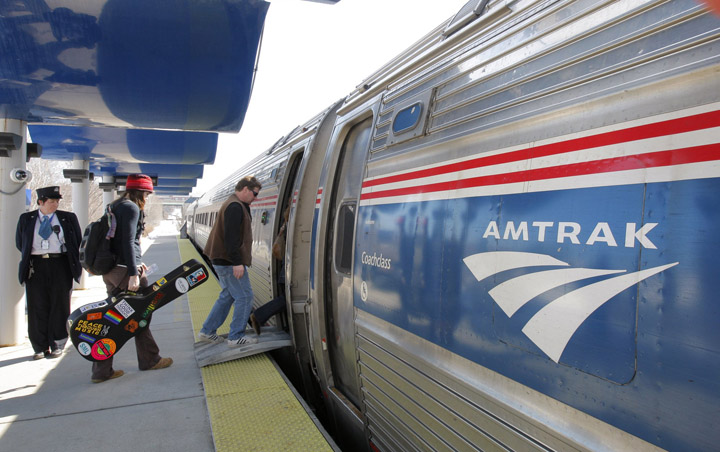Since I tend to jump all over Gov. LePage when he does something I don’t like, I should be willing to give him credit when he does something I do like.
Or at least when he doesn’t do something I wouldn’t like.
Like the governor of Florida did.
While our tea party governor was making national headlines this winter, or in his words, “sitting around selling newspapers,” Florida’s tea party Gov. Rick Scott was grabbing headlines of his own.
I guess that with the good weather and all, it’s hard to get the media’s attention in the Sunshine State, so instead of moving a painting from an office to a secret storeroom, Scott had to do something really big.
He said “no” to a $2.2 billion federally funded high-speed rail project that would have linked Tampa and Orlando, allowing tourists and business travelers to cruise at 170 mph, while drivers inch along on an overcrowded Interstate 4.
Scott said he would not saddle Floridians with a potential $3 billion tab that he figured could result if the project’s cost ran over projections and Florida was held responsible for the difference and had to return the already spent federal funding if they canceled the project after construction began.
A lot of people speculated that what Scott was really trying to do was make a bold statement, throwing back a signature policy priority of a Democratic president and asserting his small-government credentials.
Similar moves were made by tea party governors John Kasich of Ohio and Scott Walker of Wisconsin. YouTube star and New Jersey Gov. Chris Christie (whose feisty news conference videos are circulated as “conservative porn”) didn’t have a high-speed rail project he could reject this time, but he did contemptuously throw a tunnel to New York back in the faces of federal planners last year.
LePage has apparently realized that a well-timed “kiss my butt” will get you just as much attention as the refusal of a job-creating construction project that results in a business-friendly piece of infrastructure. So while his tea party brethren were trying to out-reject each other, LePage was writing a letter to U.S. Transportation Commissioner Ray LaHood, quietly asking for some of the money that Scott didn’t want.
And when the money was distributed this week, guess who got a $20 million piece of the pie?
In the world of grandiose high-speed rail projects, what’s coming to the Downeaster, which connects Portland and Boston’s North Station, with stops in between, may not sound like much.
A 10-mile side track will be built between Wilmington and Andover, Mass., eliminating a bottleneck that slows and sometimes stops the trains en route. Additional money will be spent on upgrading older, welded rail. Altogether, it could cut 15 minutes off what is now a two-hour-and-25-minute one-way trip.
That may not sound like much, but to the drivers stuck in Florida traffic while they burn $4-a-gallon gasoline, it might sound pretty good.
So, Maine’s governor not only accepted the money, but also put out a news release applauding it.
“We are extremely pleased that the Downeaster will be receiving over $20 million dollars in federal grant money that will make the Downeaster not only faster, but also will allow for more frequent trips between Portland and Boston,” the statement read. “More frequent and faster trips will benefit not only passengers, but Maine businesses as well.”
And this is where LePage is right and Rick Scott is wrong.
We have already seen significant private development in Brunswick and Biddeford driven by relatively modest public investment in passenger rail. The more often the trains run and the faster they travel, the more people will choose to ride them.
And more people will want to live near the stations, eat in nearby restaurants and do their shopping there.
That might not appeal to everyone, but to the extent that it builds a community’s value and takes cars off the roads, everyone benefits.
It’s no accident that the biggest commercial development proposed for this region in a long time is the $100 million Forefront at Thompson’s Point. The convention and entertainment center is planned for a location that was picked for its easy access to a highway, an airport — and the Downeaster’s Portland station.
At a time when jobs are scarce and infrastructure is falling apart, it strikes me as the height of irresponsibility for an elected official to make an empty gesture that might make him look good but leaves it to others to make the real sacrifice.
Fortunately, we live in Maine and, at least in this case, have a governor who sees it the same way.
Greg Kesich is an editorial writer. He can be contacted at 791-6481 or at: gkesich@pressherald.com.
Send questions/comments to the editors.



